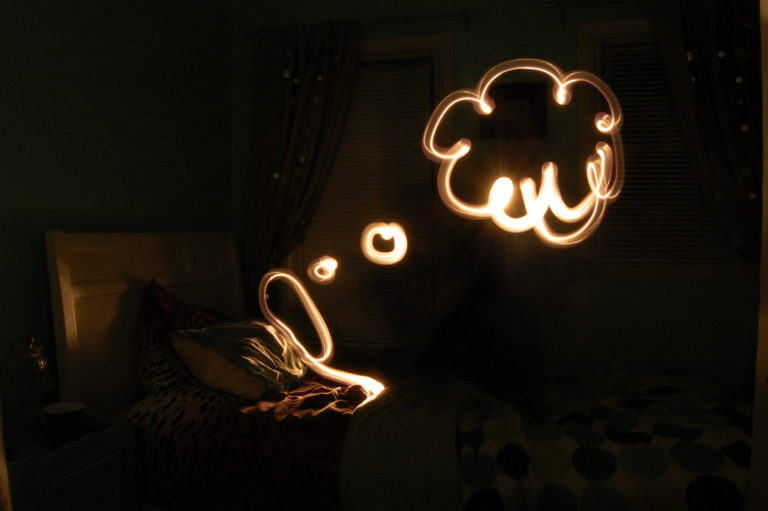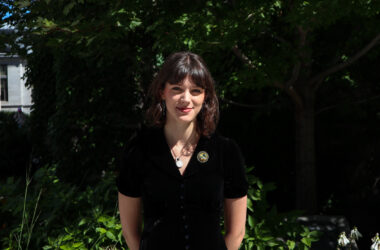I often wake up and wholeheartedly believe I am still dreaming. The scenes in my slumber world and my reality meet and intertwine, carrying the affect of my dream into the start of my day. Sometimes, I am 50 feet tall and walking for miles down unrecognizable roads; other times, I am my ordinary self but older and…pregnant? Yes, pregnant. I have an uncomfortable amount of recurring dreams like this. It is as if my sticky subconscious latches onto my fleeting thoughts and infiltrates every night, becoming part of my awakening. The impacts of these awakenings are twofold; a blessing because I get to tell everyone around me about my weird dreams, and a curse because I wake up disoriented and dazed. The act of dreaming is far from mundane; it is a conversation between our subconscious and unconscious. There is infinite value in contemplating the worlds our mind conjures.
But, as I continue to speculate the meaning of my own dreams, I have come to recognize that they are filled with an inevitable unknowing. Sleep psychologists and neurologists have formulated many theories about why we have dreams, such as strengthening memories; processing emotions; clearing out unnecessary information; or replaying life events. Some scientists, on the other hand, theorize that dreaming is but a by-product of sleep with no other function at all. If the sleep experts have yet to pin down why we dream at all, then I, a sleep amateur, have little capacity to grapple with the accurate meaning behind my unusually hyper-realistic dreams, most of which are about being suddenly, and immensely, pregnant.
Some scientists find that dreams mostly contain negative affect, meaning that they feel significant because dreamers are biased toward negative information. Those same scientists would probably tell me that discussing my pregnancy dreams with others is far from a good idea. In their opinion, doing so would likely only serve to bore or dismay my listeners. Nevertheless, I continue to incorporate them into my everyday interactions with others. Discussing dreams is a fascinating conversation-starter: People inquire all about what one gets up to during the day, so it should only feel natural to ask about where their mind went last night. I personally love explaining my dreams—and, if I am feeling up for it, acting out all the gritty details—to the people around me. I find it is always particularly entrancing to compare the kinds of dreams I have to others.
It is a disappointing cultural norm that the dream realm is often left out of conversation. In fact, discussing one’s dreams with loved ones and the rest of one’s community is considered a vital aspect of Indigenous cultures all over the world. For instance, the Dene people, inhabiting what is now known as Western Canada, believe that dreams are enmeshed with reality and that they hold prophetic significance. Aboriginal and Torres Strait Islander mythology finds even greater meaning in dreams, viewing ancestral dreams as the origin of Earth’s creation. So, before writing off dreams as a no-go in conversation, consider their social, emotional, and cultural value in the world.
As I near the end of my degree at McGill, I have spent some time reflecting on my dreams—real and metaphorical—and their place in my life. Part of living is striving to make peace with the unknown, and to believe in the present, not the future. I cannot wake up knowing exactly how the rest of my life will play out, just as I cannot lie my head down at night and know what kind of dreamlike dance my unconscious will invite me to join. Letting go of the unknown is never easy; it is anxiety-inducing, and oh boy, am I anxious about it. Yet I learn a lot from the effortlessness of the dream world. Perhaps I should revel in the disorientation of the first eyelid’s blink of a new morning, because the imaginative, carefree spirit of my dreams can bleed into my reality if I let it.







